From the Summer 1974 issue of Sight and Sound. — J.R.
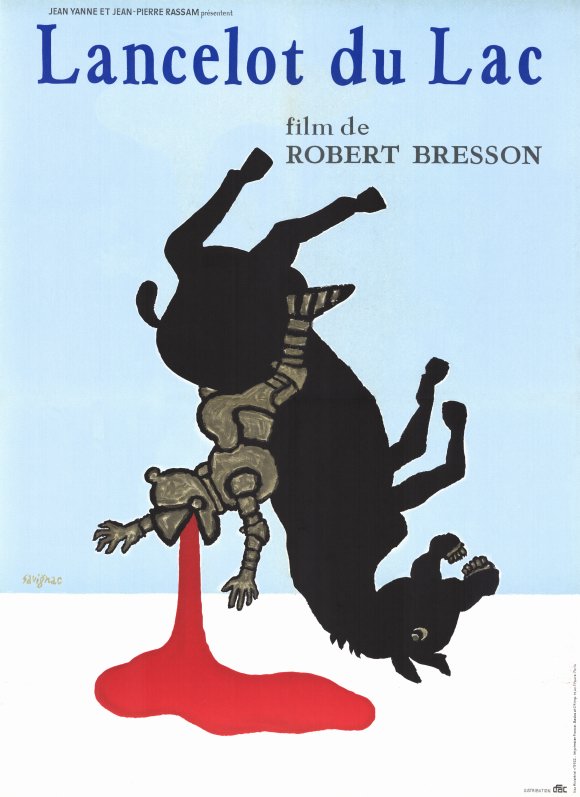
The Rattle of Armor, the Softness of Flesh: Bresson’s LANCELOT DU LAC
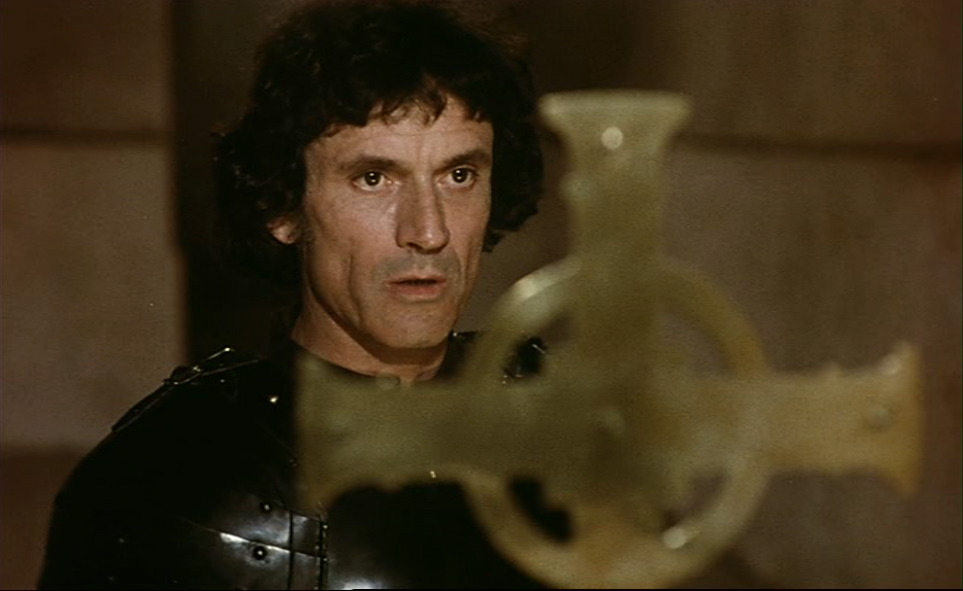
LANCELOT DU LAC embodies the perfection of a language that has been in the process of development and refinement for over thirty years. If it stuns and overwhelms one’s sense of the possibilities of that language— in a way, perhaps, that no predecessor has done, at least since AU HASARD BALTHAZAR — this is not because it represents a significant departure or deviation from the path Robert Bresson has consistently followed. The source of amazement lies in the film’s clarity and simplicity, a precise and irreducible arrangement of sounds and images that is so wholly functional that nothing is permitted to detract from the overall narrative complex, and everything present is used. It is a film where the rattle of armor and the neighing of horses are as essential as the faces and bodies of the characters, where indeed each of these elements serves to isolate and define the importance and impact of the others.
The sheer rawness of what is there disconcerts, but it shouldn’t lead one to focus unduly on what isn’t there, or track down some elusive clue to the Bressonian mystery. Read more
From the March 26, 2004 Chicago Reader. This may help to explain, at least in part, why I had no desire to see the Coens’ other remake, True Grit. (Two other reasons that come to mind: I didn’t like the original and I’m sick of American revenge plots, offscreen as well as onscreen.) — J.R.
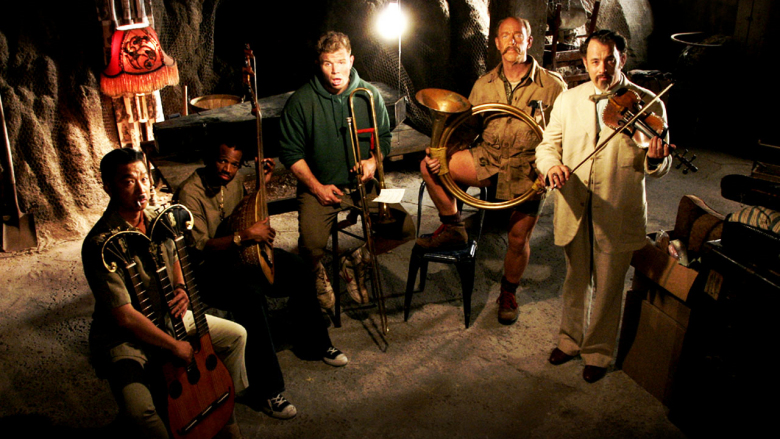
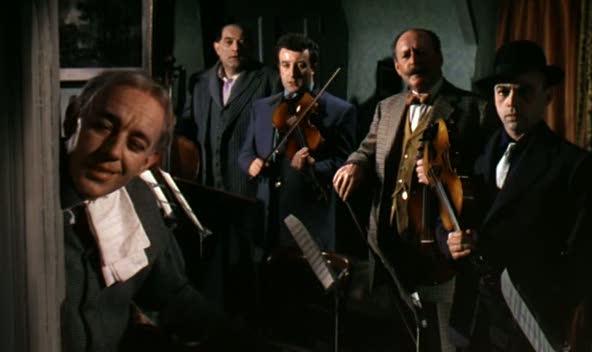
The Ladykillers
** (Worth seeing)
Directed by Joel and Ethan Coen
Written by the Coens and William Rose
With Tom Hanks, Irma B. Hall, Marlon Wayans, J.K. Simmons, Tzi Ma, Ryan Hurst, Diane Delano, and George Wallace.
The day after I saw the Coen brothers’ remake I watched the original — the Ealing Studios’ The Ladykillers, a popular 1955 English classic directed by Alexander Mackendrick a couple of years before he directed Sweet Smell of Success in the U.S. I’d taped the original over a decade ago, long before American Movie Classics started recutting features and inserting commercial breaks. AMC may assume that any film in which English is spoken is somehow American, but The Ladykillers, scripted by William Rose, is so thoroughly English I doubt its humor could be fully understood without reference to the English character or 20th- century English history. Read more
From the March-April 1976 Film Comment. I’m somewhat irritated today by the hectoring tone of this, but I tend to think most of my arguments are sound — apart from my far-too-facile insistence that Barry Lyndon is a failure, which I would now dispute. — J.R.
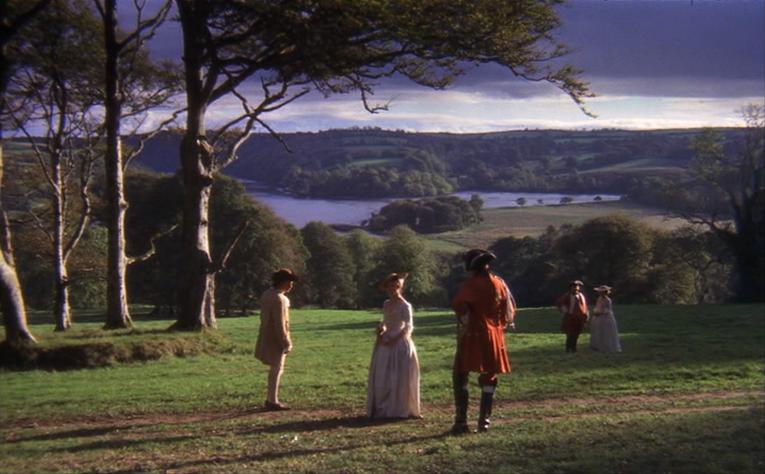
So BARRY LYNDON is a failure. So what? How many “successes” have you seen lately that are half as interesting or accomplished, that are worth even ten minutes of thought after leaving them? By my own rough count, a smug little piece of engineering like a CLOCKWORK ORANGE was worth about five. I’m reminded of what Jonas Mekas wrote about ZAZIE several years ago: “The fact that the film is a failure means nothing. Didn’t God create a failure, too?”
Anyway, what most Anglo-American critics appear to mean by failure is that they were (a) bewildered and (b) bored by their bewilderment. To some extent, I was bewildered and befuddled too. So what? Who says we have to understand a film back to front before we can let ourselves like it? “The fault, dear Brutus, is not in our stars,/But in ourselves, that we are underlings.”

London critics got to see BARRY LYNDON at least a couple of weeks before their New York counterparts, so the contrasts and comparisons that were drawn were somewhat different: while most of the former chastised Kubrick for his beautiful images before going on to rave about HARD TIMES (known over here as THE STREETFIGHTER) or A WOMAN UNDER THE INFLUENCE, the latter were usually more equitable in establishing that BARRY LYNDON and LUCKY LADY were both failures, leading the unwary to suspect that they might as well be equivalents. Read more






